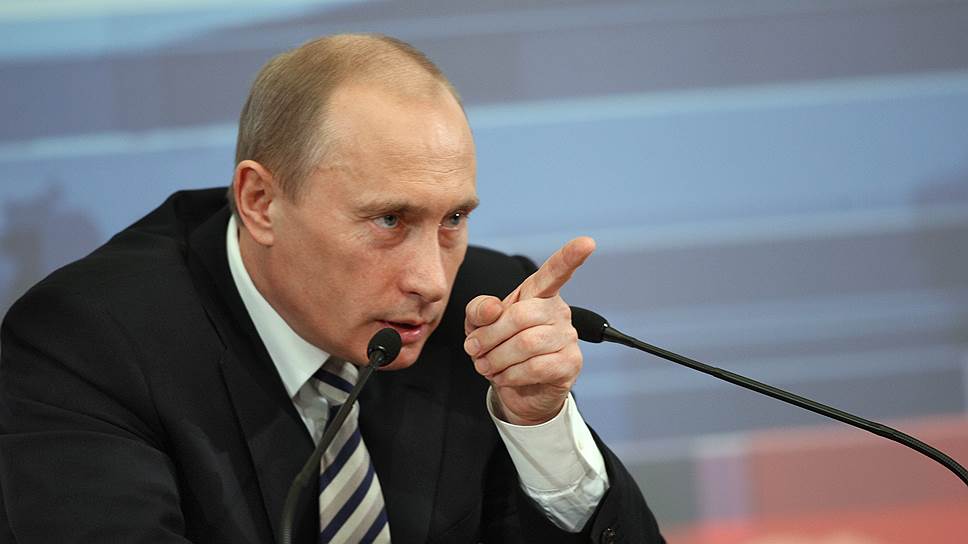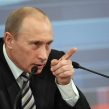
Confrontation With the West Becomes Personal for Putin—and Inescapable
Publication: Eurasia Daily Monitor Volume: 13 Issue: 21
By:

Last week’s (January 26) reporting in the Western media that the United States government was linking Russian President Vladimir Putin to corruption has rocked Russian domestic politics. Specifically, a recent BBC documentary carried remarks to this effect by Acting US Treasury Department Under Secretary Adam J. Szubin, who heads the Office of Intelligence and Analysis (Slon.ru, January 26). The real shock came, however, when the White House rather matter-of-factly confirmed Szubin’s stated opinion that the Russian president was personally involved in shady deals (Kommersant, January 29). Putin’s press secretary Dmitry Peskov called these allegations “unacceptable” as well as “outrageous and insulting” (RIA Novosti, January 29). While Russian Foreign Minister Sergei Lavrov, in a telephone conversation with US State Secretary John Kerry, described the accusations as “fanciful and rude” and complained about a “deliberate escalation of tensions” coming from Washington (Newsru.com, January 29). The resonance of this scandal is bolstered by the fact that it exploded only a week after British judge Sir Robert M. Owen announced the conclusion of the United Kingdom’s investigation into the murder of Alexander Litvinenko, which established that Putin himself had “probably” ordered it (Ezhednevny Zhurnal, January 22).
Strictly speaking, there is nothing new in the statement that Putin is presiding over a system of state-organized corruption, or in the assumption that the chain of command in dirty special operations leads directly to him. Alexei Navalny, the fearless Russian anti-corruption campaigner, argues that the enforcement of sanctions against such Kremlin-friendly oligarchs as Gennady Timchenko and brothers Arkady and Boris Rotenberg means that the US authorities are perfectly aware of the inner workings of the Russian system of corruption and of Putin’s role in it (Moscow Echo, January 29). The Russian elites’ predatory appetites have not diminished at all, despite the sorry state of the country’s economy. And the key issue for serious conversations among insiders is presently the distribution of money, which the government will have to produce to rescue the “starving” state corporations and banks (Politcom.ru, January 29). The latest “Corruption Perception Index” released by Transparency International, last week, awarded Russia 119th place out of 168 (together with Azerbaijan and Sierra-Leone), noting that embezzlement in Russia has now converged with government repression (Novaya Gazeta, January 28).
Concern over negative repercussions helps explain Russians’ reluctance to protest wide-scale systemic corruption in their country. But as the economic crisis eats deeper into their incomes, the Russian population’s irritation will likely continue to grow and could even acquire a political character (Slon.ru, January 29). Indeed, this winter, the series of protests by Russian truck drivers against new taxes had conspicuously challenged Russians’ habit of passively accepting legitimized injustice; and new protest actions are planned for the coming weeks (Nezavisimaya Gazeta, January 28). Meanwhile, worries about fast-growing flu outbreaks in Russia have convinced many in the country that corrupt interests were behind the shortage of elementary medication as well as the ban on imports of many kinds of needed drugs (Kommersant, January 29). Furthermore, Muscovites are growing angry about the hugely expensive business project, initiated by Mayor Sergei Sobyanin, to pave the capital city’s sidewalks with tiles, which have proven to be dangerously slippery in the winter (Moskovsky Komsomolets, January 29). The combination of these irritants is generating a noticeable shift in public opinion: only 45 percent of respondents now believe that the country is proceeding in a “right direction,” from the peak of 66 percent in mid-2014 (Levada.ru, January 27).
This trend is moving so fast that the authorities can neither respond to the exploding problems nor pre-empt new ones, except by recycling the government’s well-worn rhetoric about its relentless struggle against corruption (Kommersant, January 26). A more radical message came from Chechnya, where republican head Ramzan Kadyrov declared that the US accusations against Putin amounted to launching a “real war” against Russia (Rbc.ru, January 29). Nothing is a step too far in the furious information campaign that Kadyrov has launched in the last few weeks, positioning himself as a leader in the “war” against the domestic opposition (Novaya Gazeta, January 27). This does not necessarily endear him to the wider Kremlin, where Putin’s siloviki (security services personnel) may entertain similar ideas about suppressing discontent with more determined repressions and exterminating particularly bold “traitors,” but cannot tolerate Kadyrov’s ambition to champion the case of a “firm hand.” Moreover, the security services are increasingly wary of his personal “army” of some 20,000 armed, para-military personnel (Carnegie.ru, January 28).
Putin, on the other hand, remains ambivalent to Kadyrov’s brazen attempts to shape the big political agenda. But he is even more reluctant to subscribe to Prime Minister Dmitry Medvedev’s government’s timid suggestions for reforms (Polit.ru, January 28). The main mechanism for his decision-making is now not the government but the Security Council, where the siloviki are in the majority and his loyal subordinate Nikolai Patrushev is in charge of the paperwork (Carnegie.ru, January 28). This mechanism, however, produces mostly demands for channelling money to various overgrown power ministry bureaucracies or, alternatively, suggestions to boost the tired “patriotic” cause, which has successfully camouflaged the metastasis of corruption in the last couple of years. This cause now needs more public-mobilizing events in response; but the risks inherent in Moscow taking any proactive steps are incredibly high, as yet another incident with the violation of Turkish airspace by a Russian bomber has shown (Rbc.ru, January 30).
Putin has always preferred bluffing to commitment, and he is obviously at a loss about how to react to the deepening economic crisis, which has overturned all his beliefs about the guaranteed prosperity of owners of natural resources that forever grow in value. He knows how to control the distribution of massive petro-revenues and how to turn corruption into a loyalty-building apparatus, but he seemingly has no clue about controlling the cuts in money flow or concealing the Russian elites’ corrupt appetites. One unshakable rule in his peculiar code of conduct is that personal insults cannot be left unanswered. But he is fast running out of further game-changing asymmetric answers to his mounting challenges. Ukraine is no longer a convenient target, as the Minsk process is deadlocked and a winter offensive would require a laborious mobilization of depleted resources (see EDM, January 21). Syria has become an entrapment, so instead of sabotaging negotiations, Moscow needs them to open an opportunity to escape from the intervention. The situation looks desperately inescapable, and Putin can only play on the awareness of his counterparts that a cornered rat could turn into a very dangerous animal. This argument, however, does not work for a cockroach.




